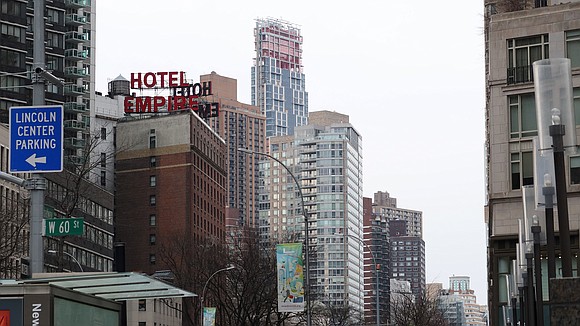New York City developer won't have to remove floors from residential building in Manhattan, court rules
CNN/Stylemagazine.com Newswire | 3/4/2021, 11:22 a.m.

By Anna Sturla, CNN
(CNN) -- A New York appeals court reversed a ruling that ordered a Manhattan high-rise construction project to dismantle multiple floors.
A February 2020 New York Supreme Court judge's ruling found that the permit for the luxury residential tower should not have been issued. The developer was ordered to remove all floors that may have exceeded the zoning limit.
But the appeals court on Tuesday said that won't need to happen.
The 52-story development, 200 Amsterdam, was cobbled together from multiple whole and partial lots spanning a city block on New York City's Upper West Side. The grouping allowed the developers to stack more floors than usual into one building, according to the rulings and the Zoning Resolution. The project is nearing completion.
The Appellate Division of the New York State Supreme Court ruled that the city's Board of Standards and Appeals had "rationally interpreted" New York City's Zoning Resolution. The Zoning Resolution is a complex document that is more than 2,780 pages long and dates back to 1916, and which governs land use and development in New York.
"We are pleased with this reversal," Nick Paolucci, spokesman for the city's Law Department, told CNN in a statement. "While the Department of Buildings has changed its policy on zoning-lot formation going forward, the Court correctly recognized that the change was not retroactive and upheld the City's grant of a permit for this project consistent with previously issued guidance."
The appellate court also found that because construction was allowed to continue and the building was mostly complete, the debate was largely moot.
"This ruling ensures that New Yorkers can rely on legally sound permits without fear of new interpretations being enforced retroactively, which is especially important for the City's economy at this critical time," the developer, SJP Properties, said in a press release.
The Municipal Art Society of New York, one of the plaintiffs, told CNN that it was "weighing our options for next steps."
In a release issued by MAS and its co-plaintiff, the Committee for Environmentally Sound Development, the organizations said they were "extremely disappointed in this decision."
"The tactics used to create 200 Amsterdam are unprecedented, but they will become all too common if this decision is left to stand," the statement said. The society described the project as a "gerrymandered 39-sided zoning lot."



